Research
Department of Defense Research Funding

The Office of the Congressionally Directed Medical Research Programs (CDMRP), under the Department of Defense (DoD), manages Congressional Special Interest Medical Research Programs. Within the CDMRP, the Peer Reviewed Medical Research Program (PRMRP), supports research that has the potential to profoundly impact the development and implementation of medical devices, drugs, and clinical guidance that will enhance the precision and efficacy of prevention, diagnosis, and treatment across a wide range of disciplines.
In the 2022 DoD CDMRP/PRMRP cycle, 11 hydrocephalus applications were received. Of these 11, four of the applications were funded, which led to an additional $15.3M in grant awards!
2022 Funded Applications

Bonnie Blazer-Yost, PhD; Teri Belecky-Adams, PhD;
Dr. Shenandoah Robinson, PhD; and Lauren Jantzie, PhD
IUPUI/Johns Hopkins Collaboration
Focused Program Award
$7.8M

Bonnie Blazer-Yost, PhD; Tim Bentley, BVSc; Robyn McCain, RLATg; and Greg Knipp, PhD
IUPUI/Purdue University West Lafayette
Expansion Award
$3.9M

Young-Kwon Hong, PhD
University of Southern California,
Technology/Therapeutic Development Award
$3.3M

Maria Garcia Bonilla, PhD
Washington University, St. Louis
Discovery Award
$300K
Ten Innovator Awards go to Scientists for Their Groundbreaking Research
An unprecedented 10 Innovator Awards go out to scientists for their exciting research.
Despite our limited understanding of the causes of hydrocephalus and the most effective ways to treat it in different communities, the 2022 Innovator Award recipients aim to bring about change. They are investigating novel aspects about the development of hydrocephalus and evaluating innovative treatments to enhance long-term results. Additionally, we have expanded our scope to fund research aligned with our published Community Research Priorities to include improving access to care and reducing the burden of current treatments.
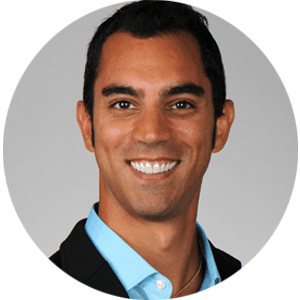
Ramin Eskandari, PhD
Associate Professor of Neurosurgery and the chief of the Division of Pediatric Neurosurgery at the Medical University of South Carolina, Charleston, SC. His research will focus on developing a new drug, PSel-Crry 2.3, that targets P-selectin/C3complement at the site of injury to reduce (post hemorrhagic hydrocephalus) PHH and neuroinflammation, leading to improved functional recovery in a hydrocephalus model. The successful outcome of the study will provide insights into the complement system’s role in PHH and advance the field of medical therapeutics for PHH. Thank you to Team Hydro for their generous support of this grant.

Ryann Fame, PhD
Assistant Professor of Neurosurgery at Stanford University. Her research aims to understand the impact of hydrocephalus-associated genes on neural progenitors during early brain development and how it affects cerebrospinal fluid (CSF) volume and regulation. The outcome of this research will be the discovery of how these genes impact the brain, understanding the relationship between disrupting neural progenitors and CSF volume, and the identification of candidate CSF biomarkers for hydrocephalus prodrome.
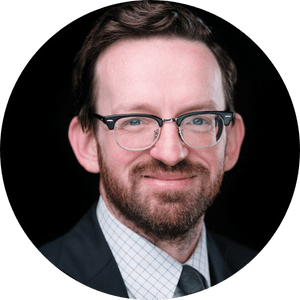
Gabriel Haller, PhD
Associate Professor at Washington University in St. Louis. His study aims to generate a detailed molecular landscape of hydrocephalus and understand the complex genetic architecture that causes it. The goal is to use human multi-omic data to shed light on the pathological events leading to hydrocephalus and to identify novel molecular biomarkers and drug targets to improve patient outcomes. Thank you to Team Hydro for their generous support of this grant.

Carolyn Harris, PhD
Associate Professor of Chemical Engineering and Materials Science at Wayne State University. One of her projects aims to reduce shunt obstruction in hydrocephalus patients by developing functional surface microstructures on the catheter surface to reduce astrocyte adhesion and periventricular tissue pull-in. The project uses soft lithography, computational fluid dynamics simulations, and benchtop simulation to validate the reduction of shear, pull-in and astrocyte attachment and proliferation.
Another project, supported by Team Hydro, aims to create an in vitro tool for molecular biologists and drug designers to study the cerebrospinal fluid (CSF) production process and fast-track pharmaceutical drug development. Her microfluidic model of the choroid plexus is used to track changes in CSF secretion with the long-term goal of improving hydrocephalus treatment through pharmaceutical strategies.
Lastly, funded by the Rudi Schulte Research Institute (RSRI), she aims to create an in vitro tool for molecular biologists and drug designers to study the CSF production process and fast-track pharmaceutical drug development.
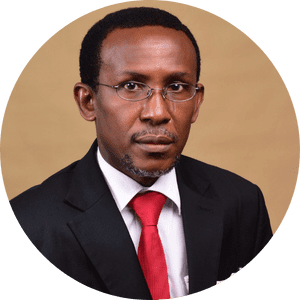
Olufemi Idowu, PhD
Consultant Neurosurgeon in the Division of Neurosurgery, Department of Surgery, and professor at Lagos State University. His project aims to study the barriers to early diagnosis and treatment of childhood hydrocephalus in low medium income countries through quantitative and qualitative analyses. The goal is to guide policies that will improve access to neurosurgical services and decrease morbidity in patients with childhood hydrocephalus, especially in resource-challenged countries.
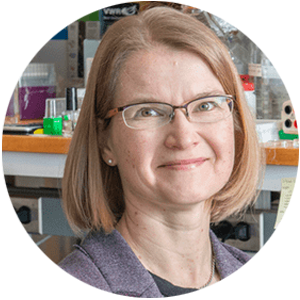
Maria Lehtinen, PhD
Professor at Boston Children’s Hospital. Her research aims to explore the role of an enzyme secreted by the choroid plexus in guiding oligodendrocyte maturation and myelination in the developing brain in response to intraventricular hemorrhage (IVH) and hydrocephalus. If successful, this study could lead to the identification of a new therapeutic path for IVH and hydrocephalus.
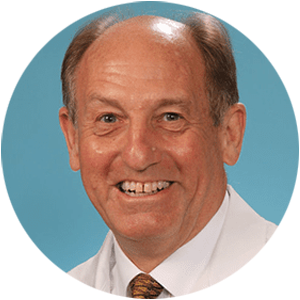
James ‘Pat’ McAllister, PhD
Professor at the Washington University in St. Louis. His proposal aims to study key cellular and molecular mechanisms involved in neuroinflammation associated with pediatric hydrocephalus through animal models and various neuroimaging techniques. His goal is to identify pharmacological targets, develop novel surgical and bioengineering treatments, and explore strategies for neuroprotection and functional recovery. Thank you to Team Hydro for their generous support of this grant.
Community Research Priorities
We listened closely to the needs of our community over the last two years by conducting a formal study using the James Lind Alliance (JLA) methodology that included patients, family members, scientists and physicians. This study has been published in the Journal of Neurosurgery.
With input from almost 1,500 people over the course of two surveys and a workshop we have developed our Top 20 Community Research Priorities.
These priorities have been condensed into five areas of focus where the Hydrocephalus Association is best poised for highest impact. These will be the guiding beacons for HA's actions influencing our actions in research, advocacy, education, fundraising, and awareness.
FIVE AREAS OF FOCUS
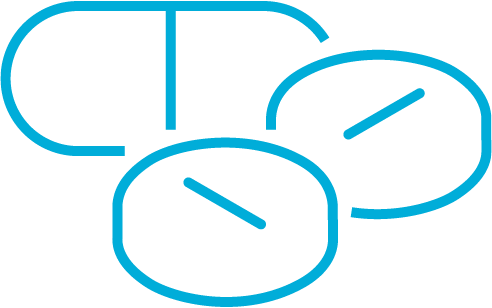
Develop non-invasive and one-time therapies
Rank 1: Develop new treatments that do not require brain surgery to manage hydrocephalus
Rank 2: Develop new one-time treatments to manage hydrocephalus (i.e. permanent treatments that do not require additional interventions)
Rank 8: Develop ways to prevent the development of hydrocephalus
Rank 12: Develop therapies (e.g. stems cells, cellular regeneration) to repair brain damage for people affected by hydrocephalus

Reduce the burden of current treatments
Rank 4: Develop ways to monitor shunt function and detect shunt malfunction non-invasively and/or outside of the hospital
Rank 5: Improve shunt components and surgical techniques to prevent shunt blockages and mechanical failure (e.g. broken valve, disconnected tubing, broken tubing)
Rank 6: Develop methods to non-invasively or less-invasively unblock shunts
Rank 7: Improve shunt designs and surgical techniques to enable less or non-invasive shunt placement and shunt revisions
Rank 9: Develop a better understanding of the symptoms patients experience when their shunt is failing
Rank 11: Determine which treatment strategy will be most effective for each patient by comparing clinical protocols and treatment options (e.g. shunt vs. ETV, programmable vs. non-programmable shunts)

Improve the screening and diagnosis of hydrocephalus
Rank 3: Identifying the causes and processes that lead to hydrocephalus (e.g. genetic influences, inflammation)
Rank 10: Improve ways of diagnosing and screening for hydrocephalus to allow for earlier detection of the condition
Rank 20: Develop ways to accurately determine if a patient would benefit from hydrocephalus treatment, such as shunt, prior to surgery
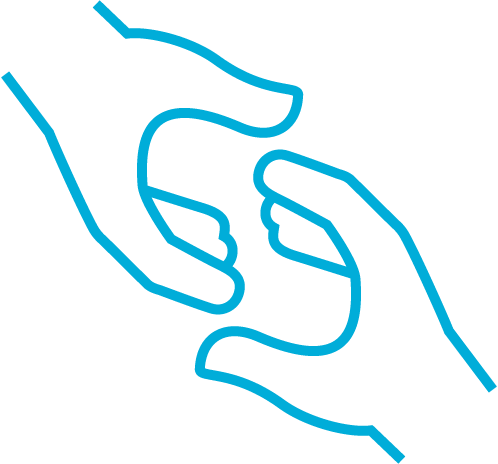
Improve quality of life
Rank 14: Improve our understanding and develop ways to reduce the emotional and psychological challenges (e.g. stress, anxiety, and depression) of living with hydrocephalus
Rank 15: Improve our understanding and develop ways to reduce headaches and migraines related to hydrocephalus and hydrocephalus treatments
Rank 16: Improve our understanding and develop ways to reduce impairments in attention, learning, memory, and problem solving related to hydrocephalus
Rank 17: Improve our understanding and develop ways to restore physical function and motor control (e.g. walking, balance, and urinary continence) in people with hydrocephalus

Improve access to care
Rank 13: Determine how to improve patient access to doctors and hospitals that have expertise in hydrocephalus
Rank 18: Determine how to improve coordinated care across medical specialties (e.g. neurosurgery, neurology, cognitive therapy, physical therapy, etc.) for people with hydrocephalus
Rank 19: Determine how to improve a patient's transition from pediatric to adult medical specialists (doctors)
Improving Cognitive and Psychological Outcomes in Hydrocephalus
Hydrocephalus Association and Rudi Schulte Research Institute Workshop
Honoring the Legacy of Dr. Michael Pollay
In October 2022, we welcomed 53 neuropsychologists, scientists, engineers, neurologists, neurosurgeons and patients to the Hydrocephalus Association (HA) and Rudi Schulte Research Institute (RSRI) 2022 Research Workshop in Houston, TX. The focus of the workshop was Improving Cognitive and Psychological Outcomes in Hydrocephalus. The workshop delved into the underlying neuropathology of the cognitive and psychological challenges individuals with hydrocephalus face across the age spectrum.
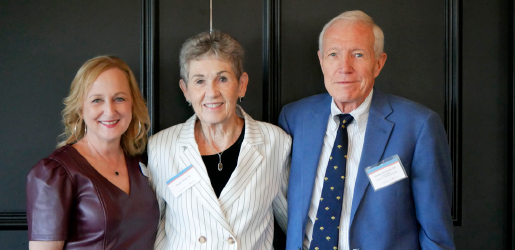
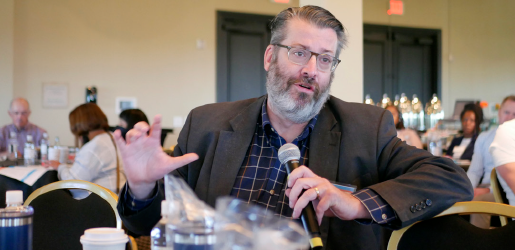
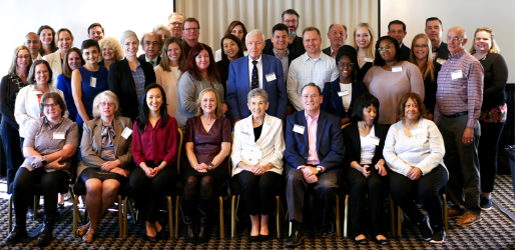
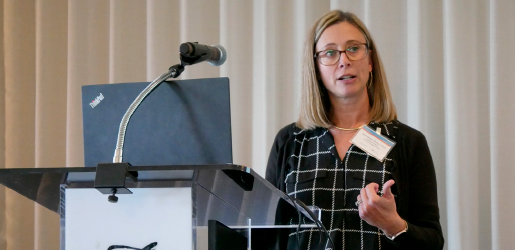
HA was delighted to be able to host this important meeting through the generous support of RSRI. The workshop was dedicated to the legacy of Dr. Michael Pollay, friend of Rudi Schulte and long-time RSRI board member until he passed away in February 2021. At the beginning of the workshop, attendees heard more about Dr. Pollay’s legacy through his dedication to patients, growing the field of neurosurgery through mentorship of medical students and residents, and his passion for making the world a better place through neuroscience. With nearly 100 publications, Dr. Pollay was an internationally recognized scientist and was funded multiple times by the National Institutes of Health and the Department of Veterans Affairs.
“Michael would have been so touched by this recognition and pleased by this valuable sharing of information between many great minds. It makes me hopeful for the future of hydrocephalus research,” said Peggy Pollay.
One of the ongoing frustrations for so many of those living with hydrocephalus, their caregivers, and healthcare providers is the hardship of the cognitive and psychological manifestations that too often negatively impact mental and physical health, relationships, education, and employment.
Last year, HA wrapped up a comprehensive, patient-centered study to determine the top 20 research priorities for our community. While it was expected that better treatments, fewer surgeries, and prevention would top the list, it was profoundly evident that patients care deeply about the complications of living with hydrocephalus that are caused by cognitive challenges with memory, attention, and executive function, as well as the mental health challenges that often go hand in hand with hydrocephalus and its related symptomatology. The hydrocephalus community is craving recognition and better solutions to these often-disabling psychological impacts on their lives.
During the first day of the conference, attendees listened to sessions on basic and translational science, and cognitive and psychological phenotypes. They were also treated to a performance of spoken word by Dani Lucchese, a member of our hydrocephalus community reading her poem about life with hydrocephalus. On the second day of the conference, attendees listened to sessions on transitions, treatment and quality of life, and moving the field forward. Robin Ennis then shared her performance of spoken word followed by a Patient Perspective Panel that included Robin Ennis, Dani Lucchese, Amanda Garzon and Gary Chaffee.
HA would like to thank all of the workshop’s speakers and attendees.
Nurturing Future Researchers
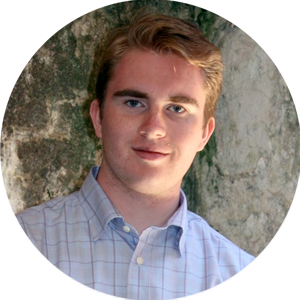 The Hydrocephalus Association (HA) selected Kevin Miller as the recipient of the 2022 Ralph Kistler Internship. The internship is designed for undergraduate college students who are interested in the sciences, public health, and non-profit operations and it took place June through August 2022.
The Hydrocephalus Association (HA) selected Kevin Miller as the recipient of the 2022 Ralph Kistler Internship. The internship is designed for undergraduate college students who are interested in the sciences, public health, and non-profit operations and it took place June through August 2022.
Ralph Kistler was a longtime friend of the Hydrocephalus Association. The Ralph Kistler Research Internship commemorates Ralph's spirit and the impact he had on the hydrocephalus community.
After completing the internship, this is Kevin’s perspective:
"With strong aspirations to become a neurosurgeon myself, my neurosurgeon (Dr. Kristopher Kahle) introduced me to the Hydrocephalus Association. I applied for the Ralph Kistler Research Internship and was honored to be selected. My first internship task was to read all the literature I could. It was disheartening to learn that anyone, regardless of age, can develop hydrocephalus due to the various etiologies.
Combining my keen interests in health economics and data analysis, I analyzed the baseline data of the patient registry HAPPIER, with a particular emphasis on the access to care section. Thanks to the Ralph Kistler Research Internship, I am now the lead author of a scientific paper that has been submitted to the Journal of Neurosurgery!
What makes this internship so spectacular is that in addition to a research paper, I was fortunate enough to attend HA Connect in Austin, Texas, where I had exposure to researchers, physicians, advocates, and patients. My time with the Hydrocephalus Association was so memorable and inspiring that I am currently pursuing a Fulbright Scholarship to conduct hydrocephalus research on access to healthcare in Canada. This opportunity would not have been possible without the connections I made through this internship. I am extremely grateful for the Hydrocephalus Association and hope to work again with this fantastic organization."

